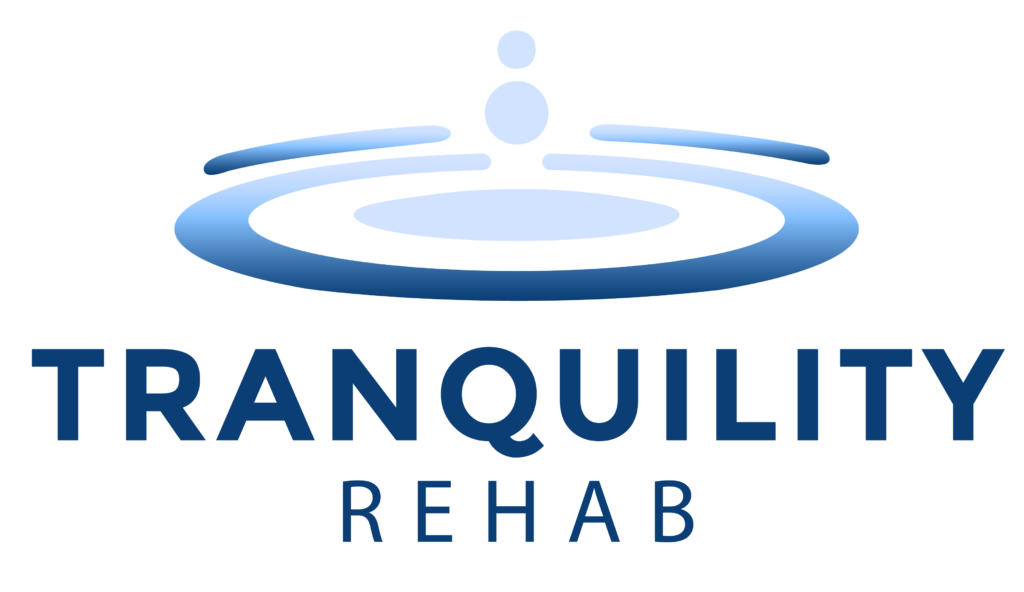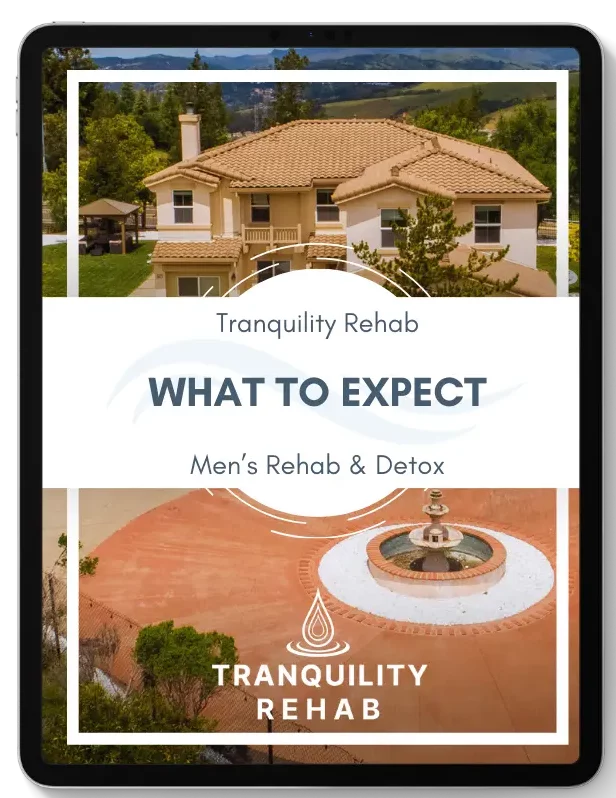When you see your loved ones suffering from mental illness and drug abuse problems, you feel helpless and don’t know where to turn. Because in such issues, a complete array of treatments and therapies are required to help the patients get out of the turmoil.
Rehabilitation is the process of providing care and healing to people who are struggling with substance abuse and drug addiction problems. The purpose of rehab center is to provide both physical and mental health recovery and sustain the healthful impacts of that recovery. They assist you in getting back to normal life by improving the habits and abilities that you need in life to maintain a healthy lifestyle.
Tranquility Rehab gives you all types of treatment facilities as per your needs. It provides you with great support on each step of recovery and helps you to start a new life and get sober by applying the strategies and principles provided by the rehab center.
Effects of Drug Addiction:
It is necessary to get complete treatment for drug addicts because drug addiction poses miserable effects on your life. It disturbs your health and your lifestyle completely. Your near and dear ones also get affected by your noxious behavior. Most teenagers fall prey to this. Misuse of prescription drugs, use of alcohol, or any other type of substance abuse can cause severe drug addiction.
By indulging in such activities, your normal functioning of body and brain suppresses and causes the arousal of depression, anxiety, hopelessness, and suicidal thoughts and often leads to criminal activities. The boundary between what is good and what is bad appears vague to you. Your mental activities retorted. Your loved ones also suffer from shame and defame due to your involvement in drug abuse. Such situations often result in the outcast of the addict from the family.
So, intensive care is required on the basis of the patient’s drug history, needs, and severity level to get him a sober life.
How does a Rehabilitation center work?
A rehab center is made to treat the ones who are battling drug abuse. They provide all types of facilities and treatment programs needed for the care and healing of the patient from addiction.
Such centers have highly trained and experienced medical teams and professional staff who are always available to give to the care you need. Their goal is to avoid relapse and control withdrawal symptoms. Because if left untreated, you might face severe health issues like liver failure, heart attack, or even death.
Their residential area poses a healthful impact on your health. The professionals engage you in different healthful and mindful activities to change your attitude towards drugs. In the comfortable setting of rehab centers, patients feel calm and relaxed as they meet other people who suffer from the same problem. They feel more confident, and by applying different addiction treatments and therapies, they overcome their drug abuse problems.
What are the types of Rehabs?
There are various types of rehab treatments and therapies given in drug addiction rehabilitation centers as per the level of need and care of the patients. It is essential for people who want to get rid of drug addiction and substance abuse to get individualized treatment in rehab centers because every addiction story is unique, and the level of care that persons need is also different. So majorly, rehab treatments are divided into two categories, inpatient treatment and outpatient treatment.
Inpatient Addiction Treatment:
Inpatient treatment is also known by the name of residential treatment. In inpatient rehab, patients admit themselves in the center for various lengths depending upon the type of treatment they are taking. Their average stay is 30 days, but it may prolong to 60 days or 90 days depending upon various factors like severity, drug history, and co-occurring mental health issues.
The controlled environment of rehab centers ensures complete and highly structured care for you and your loved one who wants to get rid of addiction and substance abuse problems. You can receive 24/7 clinical care from our multidisciplinary team of professionals. The main benefit of residential treatment is that it saves you from different challenges of withdrawal and the problematic environment of home, which sometimes add fuel to the chances of relapse to occur. Here is a rehab center where patients feel relaxed, determined, and focused on their goal to quit addiction in a distraction-free setting.
Outpatient Addiction Treatment:
As the name refers, outpatient treatment provides you with treatment sessions and therapies that can be attended several times on an appointment basis in a week. You can carry on with your routine life activities and responsibilities. You just have to attend the rehab center on an allotted time schedule for medication and support system.
The main purpose of outpatient treatment programs is to educate people on drug addiction and offer them counseling sessions that support them morally.
Outpatient programs can be of various types. It can be a day program in which patients have to visit the center 4 to 5 times a week. Or it can be an intensive outpatient program in which patients get intensive care for addiction treatment while managing their job and other responsibilities. Moreover, partial hospitalization and aftercare addiction treatments are also provided in rehab centers. In most cases, outpatient treatment is recommended when you do not have a severe issue of addiction. All the therapy sessions and medical detox is given on an appointment basis.
Alcohol detox and Drug detox:
Detoxification ensures that a person’s body is stable and free from all traces of alcohol and drugs because once a person starts taking drugs, his body becomes habitual of their consumption and presence in the body. When you stop taking such substances, your body gradually starts suffering from unpleasant and troublesome symptoms. These symptoms are withdrawal symptoms. If not controlled properly, they can cause chronic diseases. Some of the withdrawal symptoms are:
- Abdominal cramps
- Nausea
- Diarrhea
- Vomiting
- Sweating
- Shivering
- Paranoia
- insomnia
- Increased heart rate
- High blood pressure
Performing detoxification on your own is highly dangerous and unsuccessful; therefore, both drug and alcohol detox should be performed under the special care of professionals, as every person takes detoxification in a unique way.
Therapies used in drug rehab:
Several types of therapies are given in rehabilitation centers to bring sobriety into people’s lives. These therapies include:
- Cognitive-behavioral therapy
- Behavioral-dialectical therapy
- Motivational interviewing
- Trauma therapy
- Family Counseling
- Biofeedback
- 12 step program
- Holistic treatment
Cognitive-behavioral therapy:
It aims to interlink emotions, aims, thoughts, feelings, and actions. It teaches patients how their emotions bring changes in their actions and behavior, thus also having a great impact on the recovery process. They learn new behavior and adopt positive changes in their attitude. This therapy helps patients overcome false thoughts and insecurities in the addiction treatment process. It alleviates the emotions and thoughts that cause patients to consume drugs.
Behavioral-dialectical therapy:
Behavioral-dialectical therapy, or BDT, is an evidence-based psychotherapy for mental illness, drug addiction, post-traumatic stress disorder, suicidal thoughts, and depression. The main objective of DBT is “change and acceptance.” It helps you to control your problematic thoughts and emotional dysregulation. It makes you accept the awkward and uncomfortable feelings and emotions which you tried to hide and avoid them. DBT treatment components further include individual and group therapies, phone therapies, and meetings with consultation teams.
Motivational interviewing:
Motivational interviewing, or MI, is a therapeutic approach used in drug addiction treatment. Its main objective is to increase one’s motivation and commitment to achieving a particular goal. Because in struggling with drug addiction, the patient often loses hope and strength; that case, motivational interviewing therapy helps patients to overcome all the fears and hurdles that hinder their way to sobriety. It is necessary to develop a strong relationship between therapists and clients, and it also assists in improving their coping mechanisms.
Trauma-informed therapy:
Trauma-informed can happen to you anytime, regardless of age, place, and lifestyle. When a person experiences trauma, he may turn to alcoholism or substance abuse to control negative and hopeless thoughts. This technique deals with all times of traumas a person faces throughout his life because people suffer from post-traumatic stress disorder (PTSD) after facing trauma. PTSD and alcohol or drug addiction are co-occurring diseases. It is necessary to address both issues side by side.
Family counseling:
Family counseling or therapy deals with the impacts a family bears from alcohol and drug addiction. According to a survey, 1 in every 10 children under the age of 18 has an adult suffering from substance abuse in his family. If your loved one consumes drugs, all your family members suffer an emotional and psychological breakdown. The therapist conducts different sessions to learn about the concerns and feelings of every family member. And on the basis of their issues, different other therapies are applied, like behavioral couples therapy (BCT), family behavior therapy (FBT), or functional family therapy (FFT).
Bio feedback:
It helps you to take a firm grip on your mind and body during addiction treatment. It aims to track your voluntary functions like heart rate, breathing rate, blood pressure, and temperature. Then therapists utilize this information to give feedback to the patients about how they can improve their health and make a personalized treatment plan for them to quit addiction and lead a happier life.
12 Step Program:
It is a widely used approach to treatment for substance abuse. In the 12 step program, an addict must make a list of all of the reasons that he or she has been unable to stop using drugs. The addict then must ask for help from a higher power, and the higher power will provide the addict with the strength to live a life of recovery. People who are in these groups share their experiences, fears, and successes with each other. You can also talk about what you’re going through with your sponsor, a higher power, or your 12-step group. It’s a great way to stay connected to your recovery.
Holistic Treatment:
A holistic approach to treating alcohol and drug addiction deals with the whole person. It works for the recuperation of both mind and body simultaneously. In this way, a person’s psychological and physical needs are fulfilled. It includes several techniques and therapies derived from different cultural and traditional contexts. It is an ideal approach as it curtails not only the individual and isolated addictive behavior and all the external factors, such as social anxiety, peer pressure, and family pressure, that interfere with the addict’s behavior in one way or another. Some of the strategies included in holistic treatment are yoga, meditation, massage therapy, nutritional therapy, herbal medicines, Reiki, acupuncture, and acupressure.
Looking for a Rehab Center Near me:
Deciding to go to a rehab center is the first step toward sobriety. Selection of a particular rehab center should be wisely taken. No matter what difficult phase of life you have been going through, recovery is around the corner when you step into the rehab center or take your loved one battling with alcoholism to the rehabilitation center. Tranquility Rehab allows you to get rid of all types of drug addiction problems and mental health issues. We manage your drug dependency on illegal substances like alcohol, cocaine, heroin, and many prescription drugs by providing you round-the-clock health care services through our professional and certified team.
Our primary goal is to improve your psychological, emotional, mental, and physical problems that have occurred due to the misuse of drugs. Our team of psychiatrists and professional clinical staff in Tranquility Rehab help strengthen your attitude towards living a drug-free life by giving you customized treatment plans in a peaceful and serene setting where you face no fear of shame and judgment; rather, you get a sense of solidarity when you see people suffering and struggling with the same issue. Help is just a phone call away. Contact us at 510 766 6625.


